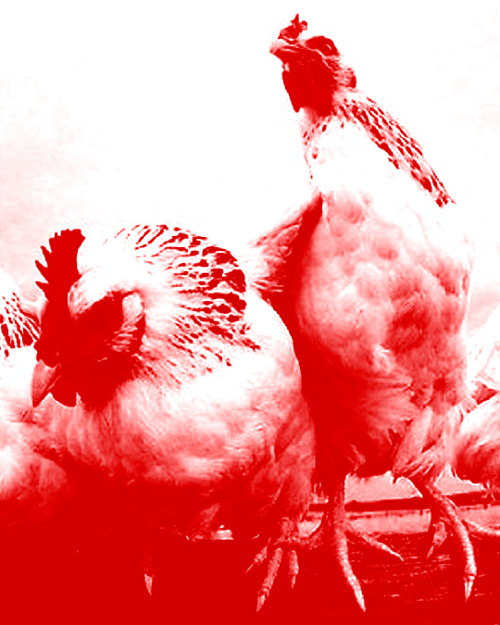Leaky vaccines can make things worse
 New research this week reveals some types of vaccines may support the transmission of more virulent forms of disease.
New research this week reveals some types of vaccines may support the transmission of more virulent forms of disease.
A study conducted by experts from the University of New England, Pennsylvania State University and the Pirbright Institute found a range of risks coming from the so-called ‘leaky’ vaccines.
Imperfect vaccines protect against disease symptoms, but do not prevent infection and shedding of the disease.
Research published in PLOS Biology this week demonstrates that such vaccines can favour more virulent strains of the disease organism.
The international team of researchers, including UNE’s Professor Steve Walkden-Brown, looked specifically into the evolution of Marek’s disease in chickens over the past 115 years.
“What began as a relatively mild disease evolved to one where there was demonstrable increases in virulence over time, coupled with vaccine failure that has led to severe challenges for chicken populations,” Prof Walkden-Brown said.
The vaccines developed to control Marek’s disease were imperfect and thought to be a contributing factor to the increase in virulence of the disease.
Prof Walkden-Brown said it should be noted that vaccination together with improved sanitation remains the best control method for controlling infectious diseases ever developed and very few vaccines are “leaky”.
“One strategy in the management of leaky vaccines for Marek’s Disease is to avoid ‘blanket’ vaccination of the entire chicken population, so virus strains evolve in both vaccinated and unvaccinated hosts, reducing the advantage of highly virulent strains.”
The research makes clear that these finding on leaky vaccines should not be confused with most “perfect” vaccines that prevent infection.
For these “blanket” vaccination is desirable as it provides nowhere for the disease organism to thrive and transmit with no implications for virulence.
At UNE, Prof Walkden-Brown and his colleagues have developed cost effective methods of measuring the risk of Marek’s disease in chicken flocks that are now used by industry.
This enables targeted vaccination which not only reduces the risk of increasing virulence, but saves money.







 Print
Print